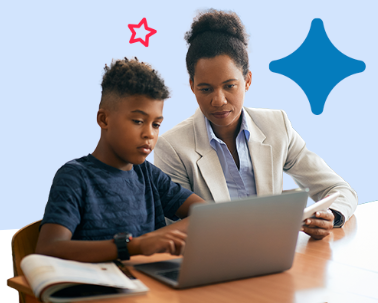Helping Students Build Skills for Peaceful Problem-Solving
Conflict is a natural part of life — especially in school settings where students are learning, growing, and interacting with different personalities.
The good news is that conflict can be a valuable learning opportunity when approached thoughtfully.
By applying simple principles from educational psychology, teachers and caregivers can guide students in resolving disagreements respectfully.
These skills don’t just help in school — they also build stronger relationships and support lifelong success.
What Is Educational Psychology?
Educational psychology is the study of how people learn. It includes understanding how students think, feel, and behave in a learning environment. This knowledge helps educators support students’ development — not just academically, but socially and emotionally, too.
How It Helps with Conflict Resolution
Educational psychology can support positive conflict resolution by focusing on:
1. Understanding Emotions
Students may act out or become upset when they don’t fully understand or know how to express their feelings. Helping students recognize emotions like frustration or disappointment is the first step toward resolving conflicts calmly.
Tip: Encourage students to name their feelings before reacting:
“I feel upset because…” instead of acting on emotion.
2. Developing Empathy
When students can see a situation from someone else’s perspective, they are more likely to respond with kindness and patience.
Activity idea: Role-playing or guided conversations where students practice listening and imagining how others feel.
3. Improving Communication Skills
Educational psychology encourages active listening and clear, respectful language — key parts of resolving conflict.
Teach students to:
-
Use “I” statements: “I feel…” instead of “You always…”
-
Listen without interrupting
-
Ask questions to understand, not to argue
4. Building Problem-Solving Skills
Guided problem-solving helps students work together to find fair solutions. Teachers can help by asking:
-
“What happened?”
-
“What do you each need?”
-
“What can we do differently next time?”
This teaches responsibility and encourages positive decision-making.
5. Fostering a Supportive Environment
When classrooms focus on cooperation, inclusion, and mutual respect, students are more likely to work through issues peacefully.
Simple ways to create a supportive space:
-
Use group activities that build teamwork
-
Set clear expectations for respectful behavior
-
Praise efforts to resolve issues calmly
Final Thought
By using insights from educational psychology, schools can turn conflicts into meaningful learning moments. These skills help students grow into thoughtful, respectful individuals — both in school and beyond.
Conflict doesn’t have to be negative. With the right tools and guidance, it can be a powerful path to understanding, growth, and stronger relationships.






